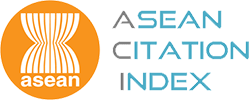INDONESIA’S MINIMUM WAGE POLICY AFTER THE OMNIBUS LAW
A COMPARATIVE ANALYSIS FROM ISLAMIC PRINCIPLES
DOI:
https://doi.org/10.32890/uumjls2022.13.2.8Abstract
The labour sector and industrial relations are pivotal for Indonesia’s development, especially in the current neo-capitalist setting.
Therefore, this article examined the current Indonesian labour law and its industrial relations through a comparative analysis with
Islamic principles, particularly after revision with the 2020 Omnibus Law. Using a socio-legal methodology, it analysed the historical and political contexts of the Acts on labour to determine their tendency to enhance or undermine labourers’ rights. Moreover, this article explored the government’s utilisation of the Acts for suppression and compared the ways of Islamic principles’ regulation of justice in industrial affairs, especially in the minimum wage policy. The study revealed that the 2003 Manpower Law, the 2020 Omnibus Law on Work Creation, and the 2021 Regulation on Wages, which are claimed to protect labourer’ rights, erode them instead. The labour laws are firm in stressing workers’ duties and obligations, yet are indecisive in regulating their rights, leading to the reduction and abolishment of several work benefits. In addition, government authorities are weak and accommodate to the interests of companies and investors. Therefore, this article concluded that the labour law provision, specifically the legal issue of minimum wage policy, does not correspond to Islamic principles and the practices of maslahah and maqosid al-shari’ah.










